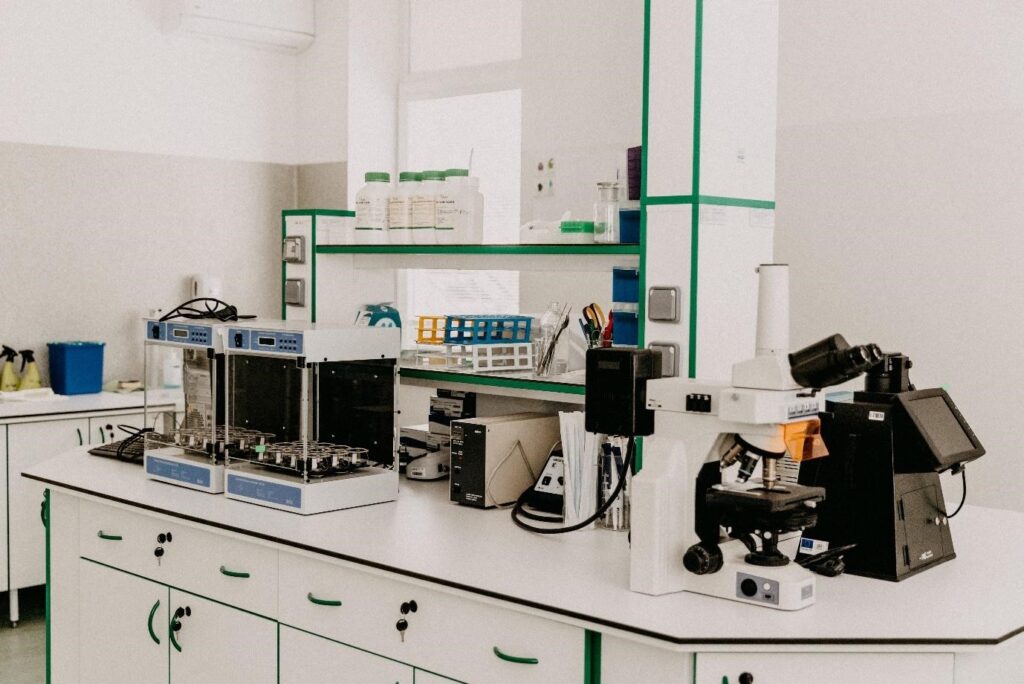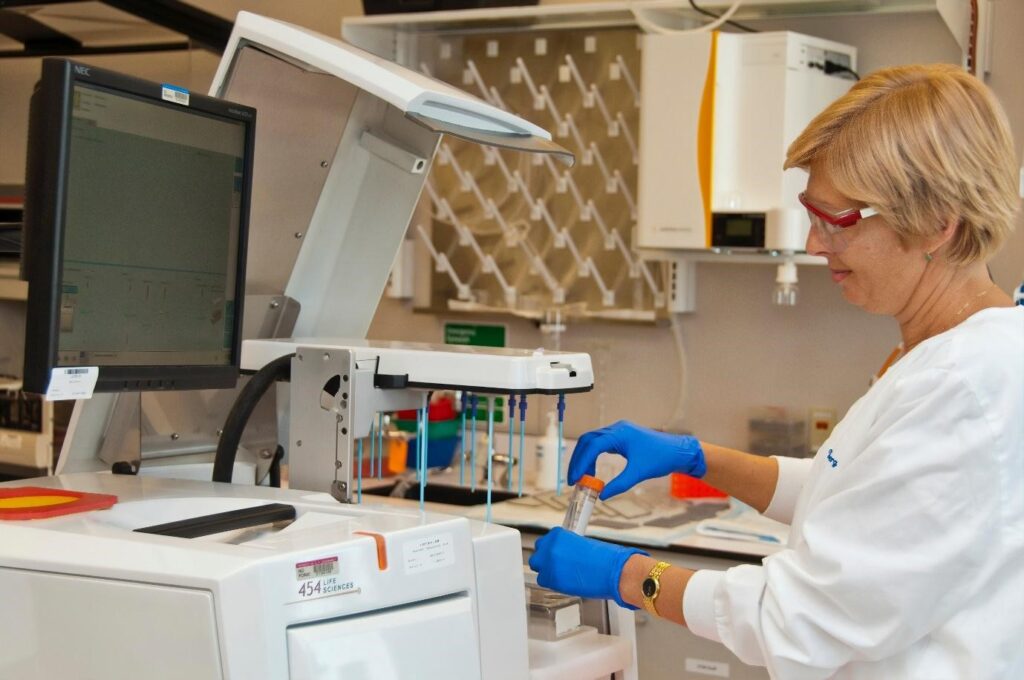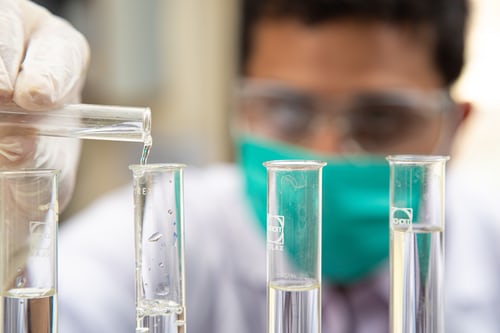Monoclonal antibodies (also known as moAbs or mAbs) are proteins created in laboratories that act like antibodies in our bodies. Antibodies are immune system components; they seek out and adhere to antigens (foreign materials) to destroy them. Significantly, monoclonal antibodies produced in laboratories aid in stimulating your immune system.
They are exact duplicates of the same antibody. Outlined is all you need to know about monoclonal antibody production.
Brief presentation of Antibodies
Antibodies are blood glycoproteins belonging to the immunoglobulin superfamily and account for most of the blood protein’s gamma globulin fraction. Nonetheless, they can be found in other bodily fluids as well.
In response to foreign organisms or antigens (bacteria, viruses), they are secreted by B cells or membrane-bound by B cells via their Fc region to the B-cell receptor (BCR). Each antibody contains a Fab’s variable region, which includes a paratope specific for one epitope on an antigen at its extremity. When these two structures bind, the Ab can tag the foreign organism or infected cells for direct neutralization or allow other immune system cells to attack them.
Why are monoclonal antibodies so expensive?

It is not easy to increase production as the monoclonal antibody production cost is high. Significantly, antibody production is typically measured in grams rather than tons.
A single gram of antibody typically costs between $95 and $200 to produce. This excludes the costs of research, development, and infusion into a patient.
The manufacturing costs are high because you must build antibodies inside mammalian cells to be alive. This implies that the cells require a body-temperature environment, fluids, nutrients, and cell-signaling molecules.
A typical monoclonal antibody production process
- Immunization of mice & isolation of splenocytes: Mice are immunized with an antigen, and their blood is tested for antibody production later. The antibody-producing splenocytes are then isolated for hybridoma production in vitro.
- Preparation of myeloma cells: Myeloma cells are immortalized cells that, combined with spleen cells, can form hybridoma, which can grow indefinitely. Myeloma cells are prepared to fuse.
- Fusion: In the presence of polyethylene glycol (PEG), which causes cell membranes to fuse. Myeloma cells and isolated splenocytes combine to form hybridomas.
- Clone screening and picking: Antigen specificity and immunoglobulin class are used to screen and select clones.
- Functional characterization: Confirm, validate, and characterize each potentially high-producing colony (e.g., ELISA).
- Scale up and wean: Increase the number of clones producing desired antibodies and reduce the selection agent (s) used.
- Expansion: Clones that produce the desired antibodies should be expanded (e.g., bioreactors or large flasks).
What are the risks of using monoclonal antibodies?

Infusion reactions are common during or immediately following monoclonal antibody treatment. These occur when your body’s immune system reacts strongly to the monoclonal antibody treatment. Rash, rigors/chills, shortness of breath, sweating, changes in blood pressure, and increased heart rate are common symptoms of an infusion reaction. However, slowing the infusion or lowering the dose can help limit these reactions.
Acute anaphylaxis, serum sickness, and cytokine release syndrome (CRS) are more severe but less common risks associated with immune system reactions.
Acute anaphylaxis is a severe allergic reaction that can be fatal. Serum sickness occurs when your immune system attacks the antiserum used by your healthcare team to help you. CRS, also known as cytokine storm, can cause organ damage.
Advantages of using monoclonal antibodies?
- One significant advantage of using monoclonal antibodies is that they have been used to create drugs that are more effective at treating certain diseases, such as cancer.
- Another advantage of using monoclonal antibodies as a treatment is their precision. This increases effectiveness and may reduce side effects.
- Monoclonal antibody quality is consistent across all production batches, which is critical for use in both therapy and diagnostics.
- You can now produce monoclonal antibodies in large quantities.
Monoclonal antibodies and procedures?
Monoclonal antibodies are typically administered as an intravenous (IV) solution injected directly into your vein (sometimes referred to as an infusion). They are frequently issued in an infusion center, where several people receive treatment simultaneously.
During your initial treatment, your healthcare providers will look for any signs of a severe allergic reaction.
Sometimes, your doctor may prescribe a monoclonal antibody administered subcutaneously (injected under the skin). You’ll be shown how to give yourself a shot, usually in the abdomen or upper thigh.
Diseases that monoclonal antibodies treat?

The following conditions have been treated with monoclonal antibodies:
- Nervous system disorders.
- Inflammatory and autoimmune diseases, including allergies.
- Eye conditions.
- High cholesterol.
- Cancer.
- Organ transplant rejection.
- Migraines.
- Osteoporosis.
- Infections, including COVID-19.
The number of FDA approvals of monoclonal antibody therapies has increased since the first monoclonal antibody drug for humans was approved in 1986.
Vaccines and monoclonal antibodies work best together
Monoclonal antibody therapy and vaccines, according to experts, should be viewed as complementary approaches to the same problem. Vaccines serve as the first line of defense because they prevent infections.
Monoclonal antibodies are a treatment option for vulnerable people who become ill after vaccination or are unable to be vaccinated in the first place. They are designed to act as a second line of defense against COVID-19.
Bottomline
Antibodies are components of the immune system. Monoclonal antibodies are laboratory-created clones of your body’s antibodies that are intended to stimulate your immune system. Significantly, monoclonal antibodies are more targeted than other treatments and have proven more effective in treating certain diseases, including cancer.
Your doctor may prescribe monoclonal antibodies depending on what you’re being treated for and your overall health.

